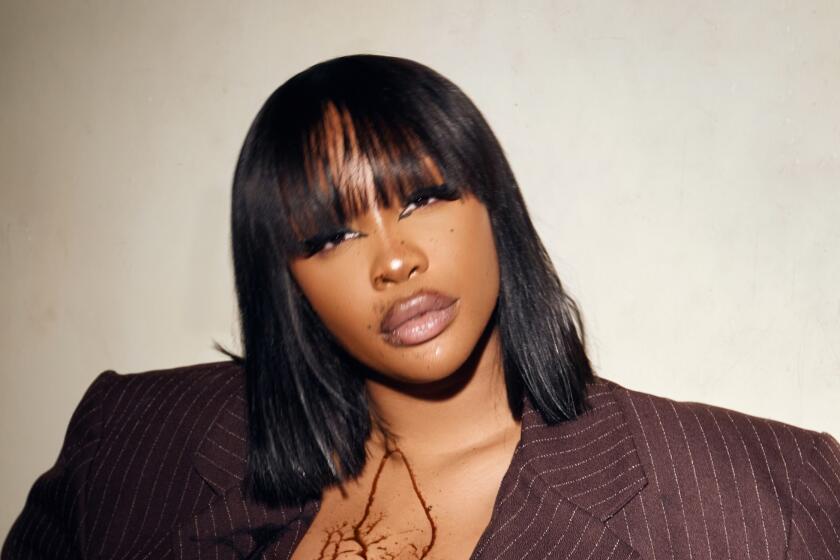- Share via
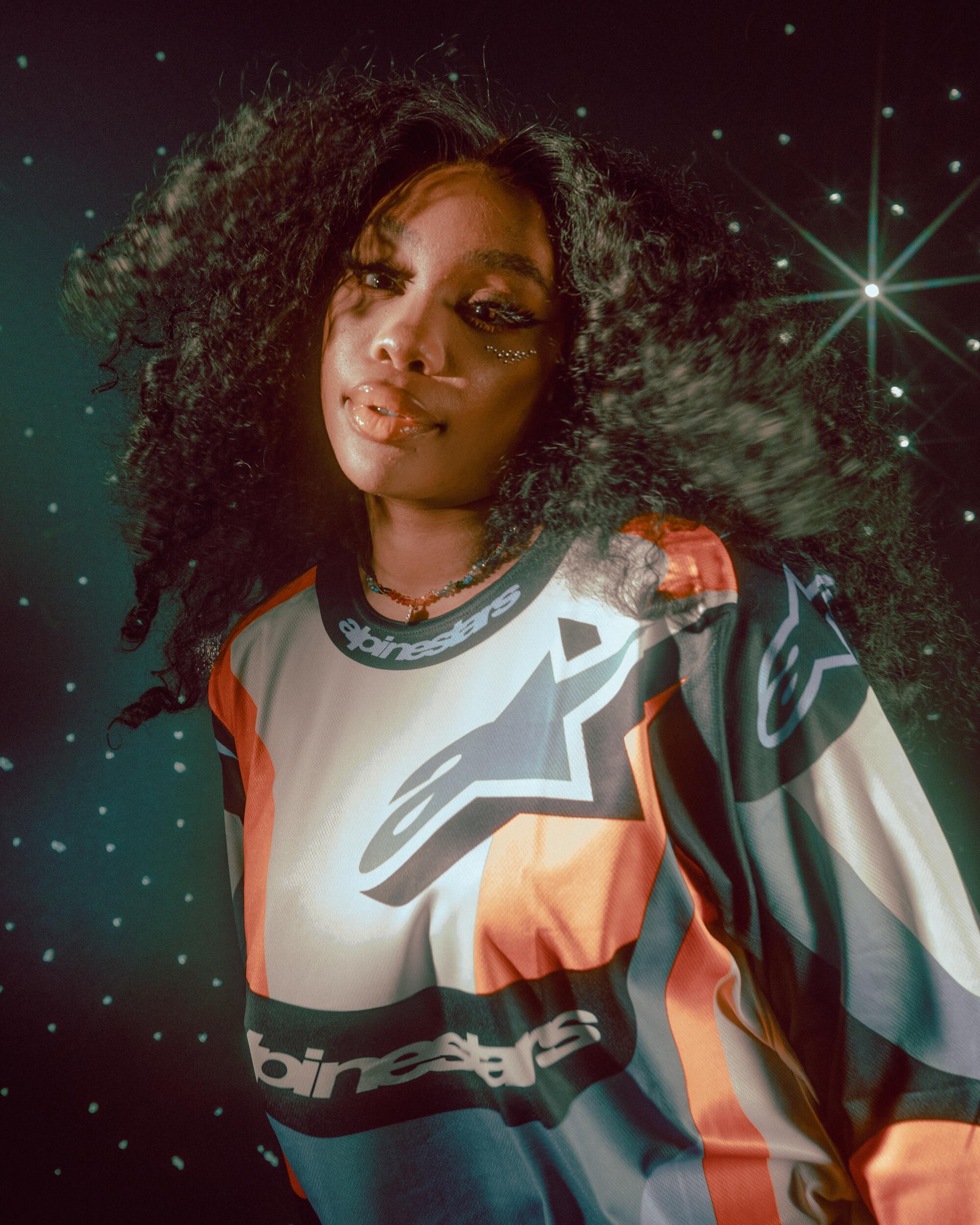
As the sun sets on a balmy February afternoon in West Hollywood, the Grammy-winning singer-songwriter known as SZA has just wrapped her second photo shoot of the day, inside a historic three-story house off Sunset Boulevard. She wears rainbow chakra beads around her neck and rhinestones on her cheeks; sinking into an antique armchair, she details her weekly agenda in spurts, as if releasing a long-repressed sigh through a pressure valve. She’s recovering from a carousel of winter illnesses: tonsillitis, then a respiratory infection, followed by a sinus infection.
“And I still gotta put in 30 minutes on the treadmill!” she says.
With more than six years between the release of her first and her most recent album, SZA, 33, is making up for lost time. Her arena tour, in support of the chart-topping LP “SOS,” begins in two weeks, including shows at the Kia Forum on March 22 and 23; the 17-show run marks her first proper North American tour since 2018. After our interview, she will fly to Delaware for 10 days of rehearsals. She describes the stage show as a “Cinderella moment where there’s weird, ethereal, mystical, soft things,” but with a “hardcore” edge.
“There might be a little blood,” she adds with a grin.
‘SOS’ evokes memories of ‘The Miseducation of Lauryn Hill,’ ‘Beyoncé,’ Rihanna’s ‘Anti’ and even Taylor Swift’s ‘Red.’
Distinguished by SZA’s biting candor around love, sex and other social entanglements, “SOS” evokes the therapy-informed prose of girlfriends venting over lattes. Such intimacy has paid off beyond anyone’s expectations; released in December, “SOS” has been the No. 1 album on the Billboard 200 for nine nonconsecutive weeks, the longest stretch for a female artist since 2016, when Adele’s “25” topped the charts for 10 nonconsecutive weeks.
“SOS” is SZA’s first No. 1 album — her acclaimed 2017 debut, “Ctrl,” reached No. 3 — and the revenge fantasy “Kill Bill” currently sits at No. 2 on the Billboard Hot 100.
“It’s funny,” she says, when I stress the magnitude of those accomplishments. “I guess I’m not mad that I’m busy. I’ve been un-busy for so long. I just wish I had better planning. I’m still learning how to assert myself.”
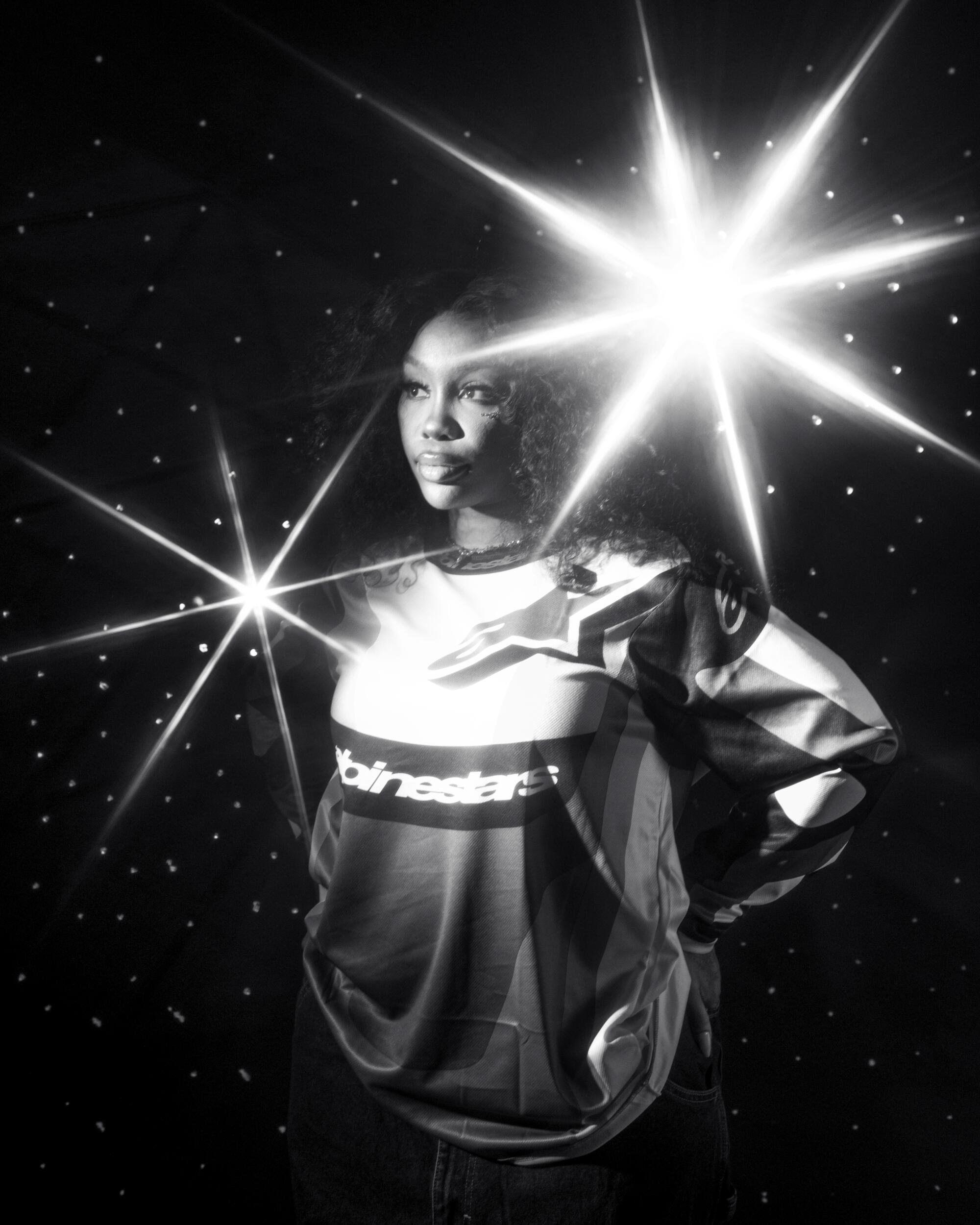
SZA says she spent years trying to live up to her reputation as an A-List hitmaker. (She wrote for Rihanna, Nicki Minaj and Beyoncé, and collaborated with Kendrick Lamar and Maroon 5 before being nominated for the best new artist Grammy in 2017.) First, she booked sessions with producer and artist whisperer Rick Rubin in his Malibu studio, Shangri-La, and tinkered with singing bowls at his home in Hawaii. She also met with Timbaland in Los Angeles, and penned a few songs with Sia while sitting crisscross on the floor of her Malibu home.
Yet none of those sessions yielded anything SZA felt comfortable sharing. By the spring of 2022, she had more than a hundred songs written, and no impetus to share a single one.
“I was pretending to be an artist,” she says of those sessions, nervously thumbing one of several rings on her fingers. “That was me doing what I thought I should be doing — people-pleasing — because I felt hella ashamed that I didn’t do it sooner. But I’ve done the opposite of pleasing my fans by not dropping music for [almost] six years.”
By the fall, SZA’s cache of songs was finally whittled down to 23, but not without the usual shame spiral that precedes her releases.
“She was still picking songs after the album was out,” says Terrence “Punch” Henderson, president of Top Dawg Entertainment, better known as TDE.

SZA, born Solána Imani Rowe, was signed to TDE in 2013; she became both the first woman and singer on the roster, which then featured such acts as Jay Rock, Schoolboy Q and Kendrick Lamar. Henderson met SZA in 2011 at one of Lamar’s shows in New York, where she, a doe-eyed fashionista from Maplewood, N.J., sold merch for a sponsor’s clothing line. Even though her demos cribbed beats from other rappers, “it was such an easy call,” he says. “I was thinking of ways to further the label. She matched our energy, creatively.”
But in the decade since he signed SZA, the two have publicly butted heads, with Henderson cast in the role of evil corporate suit trying to wrangle new music out of her. During recording sessions, he says, he’s learned to be scarce, only popping in to discuss surface-level matters, like deadlines.
In 2020, SZA implied to fans on Twitter that her new album was being held up by Henderson. “Y’all gotta ask Punch,” she tweeted, noting that their relationship had “been hostile.”
SZA eventually scrubbed those tweets. In the last year, says Henderson, the two have shared a more compassionate understanding. “I think it’s hard living under the magnifying glass,” he offers.
“You want to give an artist as much creative freedom as possible so they can do their thing, but sometimes you have to push them to go,” he says. “You gotta let the artist be upset with you. Because if you sharpen the pencil too much, and you keep sharpening, you’ll have none left.”
She learned that only in the sanctuary of her home — or in the lived-in spaces of others — can she incubate songs worth hatching. “I made [‘SOS’ lead single] ‘Good Days’ in my attic at home in Malibu — same thing with ‘Kiss Me More’,” she says of her Grammy-winning pop collaboration with Doja Cat. Other spaces of inspiration include a cottage in the woods that belongs to producer Carter Lang‘s grandma, a coat closet in producer Felix Snow’s apartment and underneath a blanket in engineer Matt Cody’s basement.
“Working in a fancy studio is bad for me,” she explains. “I’ve never made anything real at Shangri-La. When you’re in Shangri-La, you’re supposed to be a star. I’m a person. It’s easier to feel like a person in personal surroundings. I made more stuff in Rick Rubin’s bedroom in Hawaii, just being there with [producer and co-writer] Rob Bisel for a week.”
SZA also decided that, to fully gestate “SOS,” she needed to shed her dependencies. First, she stopped smoking weed — “I feel so much better now that I’m not a slave to it” — and cigarettes, a habit she laughingly credits to trying Backwoods cigars in her youth. “Backwoods will make you ugly,” she says. “My teeth are too big to be yellow. Vanity stopped me from smoking, or really [doing] any drugs. I’d try them, but then I’d realize, ‘This sucks.’ Drugs suck!”
And where she previously sought out solace in men, she now finds it in therapy. Although she generously detailed her romantic mishaps in “SOS,” she’s much too private to reveal the subjects themselves.
“I know who I am and what I bring to the table,” she says of her love life, reflecting on stinging guitar ballads like “Special” and “Good Days.” “Have I felt like I’ve actually given the best of me to a loser before? Yes! Does that mean I’m actually a loser? Well, I felt that way in the moment. It’s OK to acknowledge, ‘Damn, I made a mistake dating this person. I’ll never shortchange myself like that again.’”

What’s the one thing your exes would say about you?
I’m selfish.
Well, you’re an artist!
That’s why I don’t have children. I know that I have selfish tendencies. You forget there’s other s— happening outside your vacuum. Everyone else is like, “How could you not see me? How could you not know this is happening?” I didn’t mean to.
As tabloids run circles trying to sniff out her suitors, fans rejoice in reading between the lines of her songs. She draws titillating hypotheses with ruthless, smack-talking bars in “Smoking on My Ex Pack” (“I got your favorite rapper blocked / I heard the d— was whack,” she spits). And in the Tarantino-inspired “Kill Bill,” she openly fantasizes about killing her ex (and his girlfriend) to the tune of a soda-shop doo-wop gone noir.
Spotify reported that SZA’s murder ballad was the second most-played track on the platform on Valentine’s Day. (She was upstaged by Miley Cyrus’ “Flowers.”) On social media, listeners questioned why SZA would echo a common thought pattern among domestic abusers.
“It doesn’t mean I’m supporting violence,” she explains. “The actualization of a human being is when the Buddha and the demon meet each other — they’re two ends of the same spectrum. You can’t kill your shadow, it just has to be part of you. Cleansing oneself of negative feelings is an act of healing. I wish healing for everybody.”
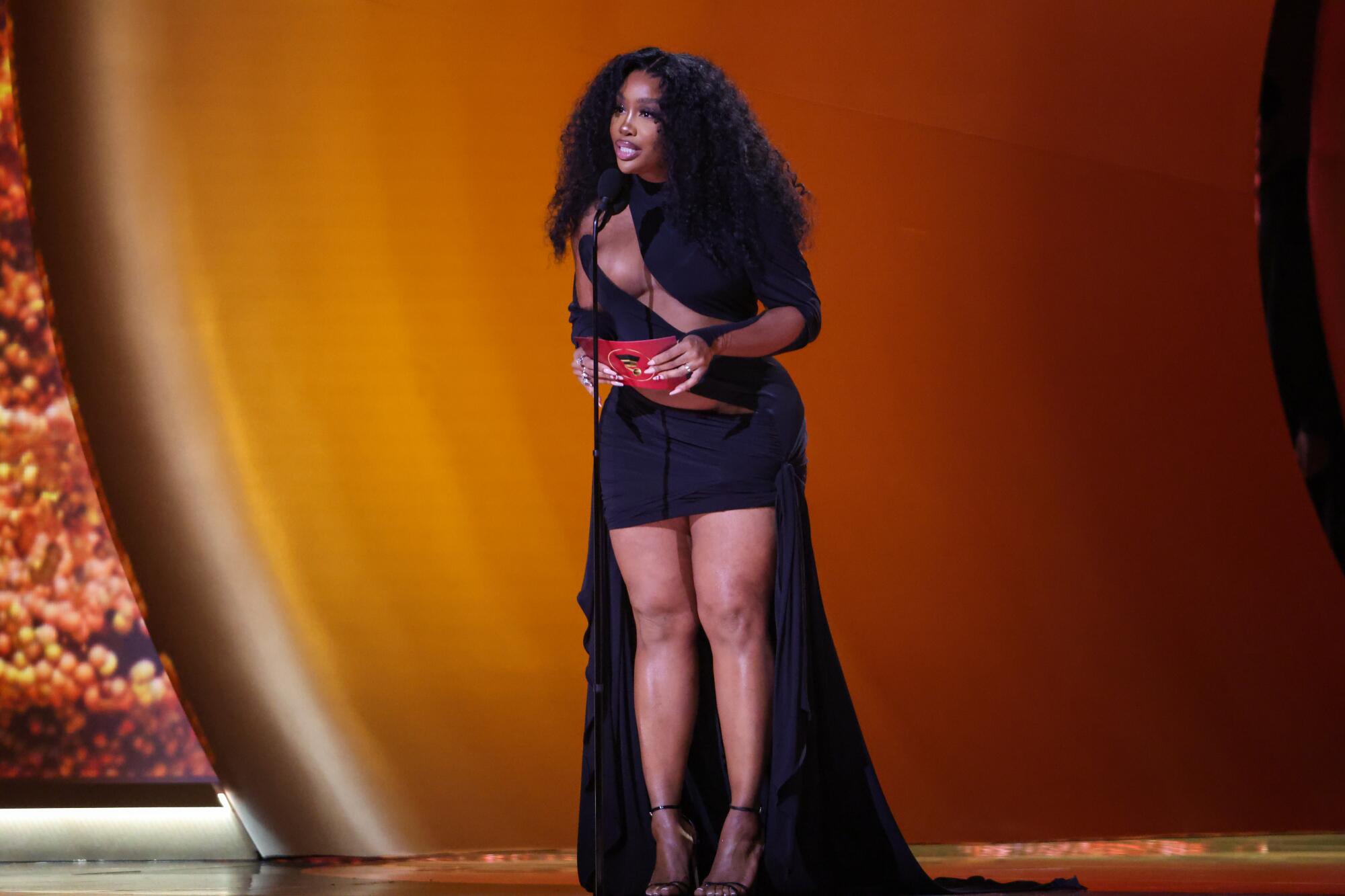
How did it feel to come out guns blazing on this album, after the extreme vulnerability of “Ctrl”?
I was tired and angry. I feel like men just pick on women so much in music, it’s corny. Women sell so much music! A lot of y’all that are talking down on women — we sell more records than you. We literally make more money.
Was there any one event that triggered that anger?
It was just seeing a lot of aggression in the [online] comments from men about women. I don’t tolerate it. Like OK, you lack emotional availability. Why does it make you better than me? What bars are you dropping? Y’all [complain that] we’re always talking about p—, but y’all talk about dogging women and it’s boring … Then you’ll be crying over text, acting weird for a crumb of the p— that you judge us for. Respectfully, I get jiggy and have fun in some songs.
The extreme of that misogyny is the ordeal that Megan Thee Stallion went through in court last year, after being shot by Tory Lanez, who was ultimately convicted of three felony counts.
It was embarrassing for men. [Megan] was harmed — why did we require so much from Megan to have empathy for her? It was inhumane how it all went, with the bizarre level of scrutiny on her sex life. But justice was served. I hope that Megan’s somewhere healing. I always find that Black women are constantly protecting everyone without being asked. What happened to protecting Black women?
However personal this record is for SZA, the musical breadth of “SOS” is a bid for the industry to properly recognize the artistry of Black women, beyond oft-racialized genres like urban or R&B. These designations feel outdated in the increasingly blurred pop topography of 2023. “Sharing all those sides [of ourselves] will beget a clearer understanding,” says SZA.
It was the urge to blur that inspired SZA to recruit Lizzo to help write “F2F,” a three-minute pop-rock joyride that recalls the Y2K-era brattitude of Avril Lavigne. The two were kicking it in an L.A. studio when they began to reminisce on music from their teen years. “I hate me enough for the two of us / Hate that I can’t let go of you enough,” sings SZA, before dropping the most toxic of truth bombs to an ex: “I f— him ‘cause I miss you!”
“People don’t know I’m naturally alternative,” says SZA. She even texted a clip of “F2F” to Paramore vocalist Hayley Williams for her personal emo endorsement. “I was like, ‘Does this suck? Because you actually do this for a living,’” says SZA. “She said, ‘This is great!’”

SZA speaks of other artists with a tinge of fan girl reverence; in reality, SZA’s on texting basis with all her faves because she is their fave. The electronic, alien cool of “Ghost in the Machine” only made the cut because indie singer-songwriter Phoebe Bridgers answered an 11th hour DM; “she’s picturesque with her words,” says SZA. For closing track “Forgiveless,” SZA tapped longtime pen-pal Björk for a sample from her 2001 classic, “Hidden Place,” to add shimmer to her hard-nosed freestyle. (SZA also finessed the estate of late Wu-Tang Clan member Ol’ Dirty Bastard to supply a never-released guest verse in the track.)
Given its critical plaudits and musical inclusiveness, “SOS” should be a top contender at the 2024 Grammys. When I begin to speculate on SZA’s fate at next year’s awards, she cuts me off — “Please don’t say it,” she groans — for fear of manifesting an outcome similar to this year’s, when Beyoncé, nominated for record, song and album of the year, failed to win any of those top awards.
“Beyoncé — she’s so much bigger than a f— Grammy,” says SZA. “She’s Beyoncé! She’s done it for women, she’s done it for Black people, she’s done it for artists. She’s done so much for the world by just being herself.”
After years of isolation from her fans, SZA’s about to face just how much being herself matters too.
“To sell yourself is really hard,” she says. “Thankfully, just being myself has been enough.”
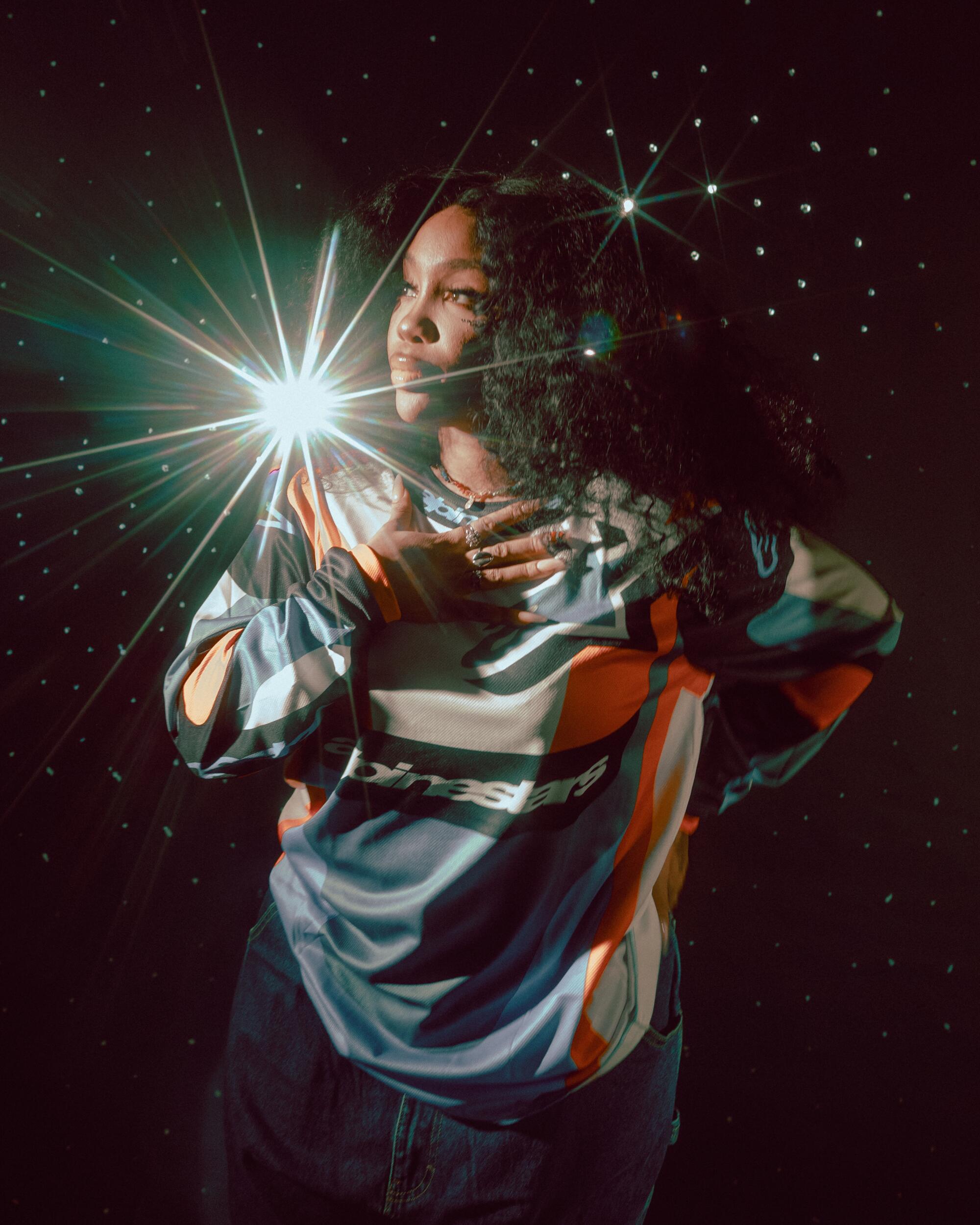
More to Read
The biggest entertainment stories
Get our big stories about Hollywood, film, television, music, arts, culture and more right in your inbox as soon as they publish.
You may occasionally receive promotional content from the Los Angeles Times.
